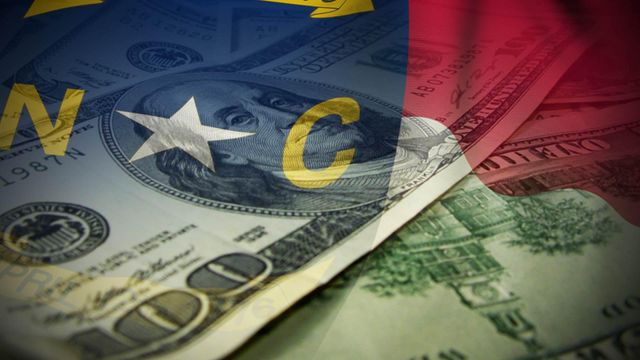Lawmakers agree to stopgap spending plan
The state Senate avoided a showdown on the eve of the new fiscal year Tuesday by agreeing to the House version of a temporary spending plan to run North Carolina government while a final budget gets worked out.
The Senate's 35-13 vote to accept the House plan sent the stopgap spending measure to Gov. Beverly Perdue, who was asked to sign the legislation before the old fiscal year ends at midnight. There was no immediate word from Perdue's office about the legislation.
The final plan sets spending parameters that Perdue and state agencies must follow through July 15. The Senate had wanted no expiration date but conceded to the deadline, which House Democrats argue will put pressure on negotiators working out the final budget.
"It's not worth fighting over," said Senate Majority Leader Tony Rand, D-Cumberland.
State government probably won't grind to a halt without the so-called "continuing resolution" in place, but there would have been no directions on how to spend because the old budget expired Tuesday, leaving Perdue with her emergency powers.
The stopgap spending measure directs Perdue and state agencies to spend at levels no more than 85 percent of what was allocated in the past year's budget. It's a reflection of the deep cuts in Senate and House budget plans because tax collections were at least $3 billion off expectations for the year ending Tuesday.
The temporary measure also prevents pay raises – which aren't expected next year – and directs bosses of state workers whose positions are slated to be eliminated in both the House and Senate versions of the budget to give them 30 days' notice before they are laid off.
Rand said he didn't know whether the House and Senate Democrats could complete their work in two weeks. The temporary measure can be extended if needed.
"It's reasonable. I don't know whether we can do it or not," Rand said. "The revenue package is the toughie."
Sen. David Hoyle, co-chairman of the Senate Finance Committee, says the House and Senate have agreed to raise $990 million in revenue in fiscal 2009-10 and $1.3 billion in the second year of the budget.
House members want to use a quarter-cent sales tax increase and higher income taxes on couples making more than $200,000 a year to generate most of the additional revenue. Senate Democrats have balked at the idea of higher sales and income taxes, however.
Senators want to lower the personal income tax rate and corporate income tax rate. They also want to lower the sales tax and begin taxing a range of services, from car repairs to lawn care to home improvements. House members also want to tax a handful of services.
One senate proposal includes a tax on recreation and entertainment. This tax would include items like greens fees for golfers.
"These politicians have no conscience. They'll tax anything," recreational golfer Al Hunter said on Tuesday. Hunter said he likes to hit the course to relax and get away from the real world.
Hoyle said the taxes are an effort to keep "our universities strong" and "community colleges and public schools open."
"Everybody's got to put a little bit in the game," Hoyle said. "We're not trying to kill anybody."
Opponents to the tax argue that golf is a key driver to the state's economy, contributing roughly $5.3 billion a year. The U.S. Open was held at Pinehurst in North Carolina in 1999 and 2005. It is scheduled to be held there again in 2014.
“I sympathize with the budget shortfall, but I think they need to looks somewhere besides green fees. I really do,” avid golfer Bob Powell said.
Hoyle does not believe the tax will have a negative impact. The tax would cost golfers half the cost of a ball, he estimates.
Plans from the House and Senate would raise cigarette and alcohol taxes and require sales tax collection on electronic downloads and online retailers who have agreements with local Web site owners to tout their merchandise.
Negotiations have centered around provisions that would tax Social Security benefits on the highest wage earners and increase the residential and retail electricity sales tax from the current 3 percent, said Sen. David Hoyle, D-Gaston, co-chairman of the Senate Finance Committee.
"We're still poles apart on the basic (tax) philosophy," Hoyle said.
House Majority Leader Hugh Holliman, D-Davidson, said Democrats in his chamber are worried that as many as 50,000 businesses would have to fill out sales tax collection forms for the first time, leading to confusion.
"We're willing to listen and look at that, but we want to go slower on the expansion into services," Holliman said.
Earlier Tuesday, Republican leaders said at a news conference that expanding sales taxes to cover more services is a reasonable change only when taxes are lowered elsewhere so that no additional revenues are generated.
"This is designed to raise a billion dollars," said House Minority Leader Paul Stam, R-Wake, who with other GOP members opposed the tax proposals.











